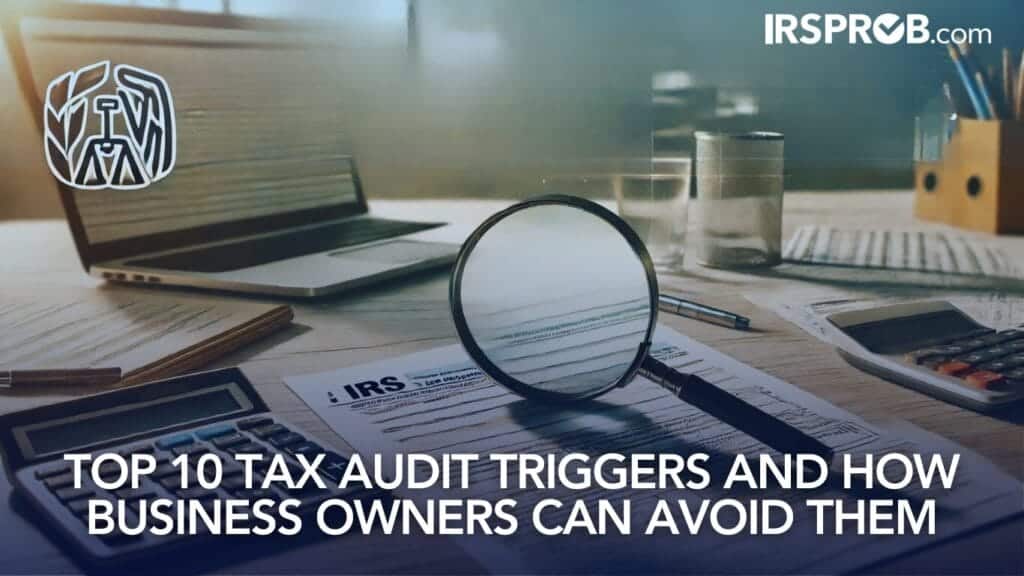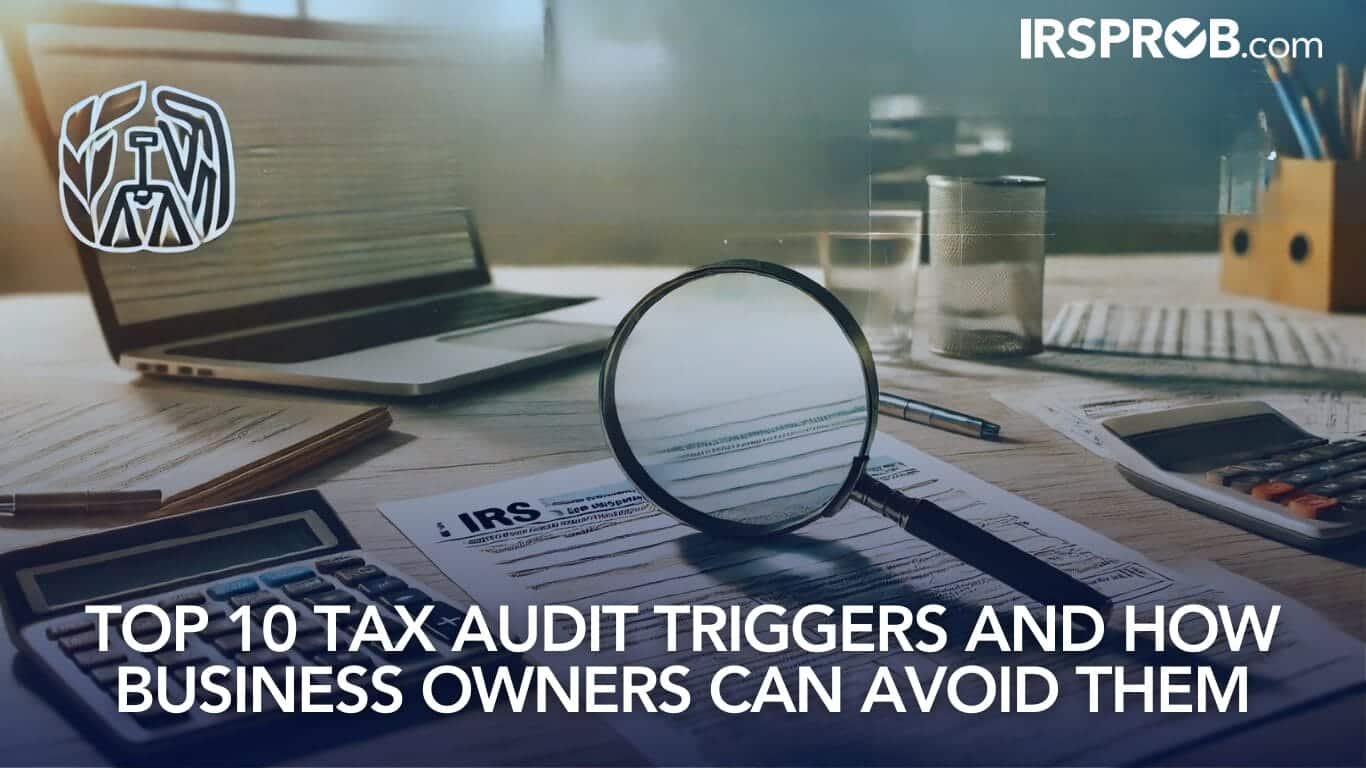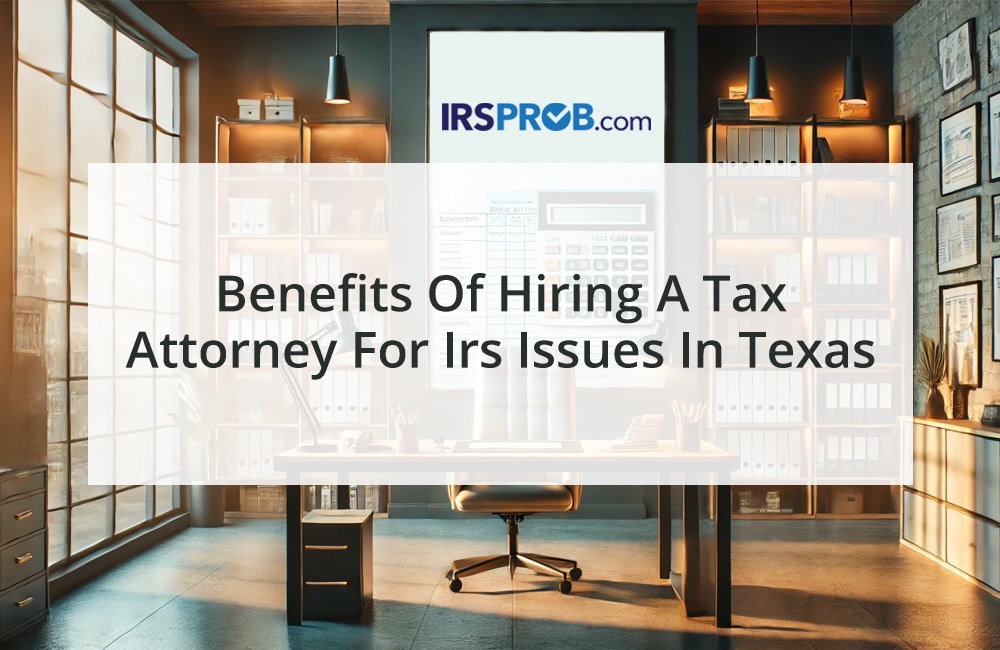
As a business owner, understanding the IRS audit triggers is essential for staying on the right side of tax compliance and avoiding potential issues. Many taxpayers, including business owners, inadvertently raise red flags with the IRS by engaging in activities that, while legal, can attract scrutiny if not properly documented or reported. Here’s a breakdown of the top 10 audit triggers and how you can minimize your risk:
1. Unreported Income
If you neglect to report all sources of income, whether from cash payments or 1099 forms, you risk attracting the IRS’s attention. Even minor discrepancies between what you report and what third parties report to the IRS can trigger an audit.
- Avoidance Tip: Keep detailed records of all income sources, including cash transactions, and cross-check them with your 1099s and W-2s. The IRS receives copies of these forms, so it’s essential to report them accurately.
2. Large Charitable Donations
While charitable donations are deductible, unusually large contributions relative to your income could raise suspicion. The IRS may question whether these donations are legitimate.
- Avoidance Tip: Document all charitable contributions carefully. Ensure you have receipts or acknowledgment letters from the charities for contributions over $250. It’s also advisable to keep bank statements or credit card records to back up your claims.
3. Home Office Deduction
If you claim a home office deduction but don’t use that space exclusively for business purposes, you could be setting yourself up for an audit. This deduction is one of the most common areas scrutinized by the IRS.
- Avoidance Tip: Make sure your home office is used solely and regularly for business. Mixed-use spaces don’t qualify for this deduction. Additionally, maintain documentation, such as photos or a floor plan, demonstrating the space’s dedicated use.
4. Rental Property Losses
Claiming rental losses, especially if you’re not classified as a real estate professional, can raise red flags. The IRS has strict rules around passive activity losses, which many taxpayers aren’t aware of.
- Avoidance Tip: Understand the IRS’s passive activity loss rules, which generally limit rental loss deductions unless you are a real estate professional. Ensure you meet the required qualifications before claiming these losses.
5. 100% Business Use of a Vehicle
Claiming that your vehicle is exclusively used for business is often scrutinized. The IRS knows that it’s rare for a vehicle to have no personal use.
- Avoidance Tip: Keep a mileage log to document business versus personal use. This should include dates, the purpose of trips, and miles driven. Only claim deductions for the portion used for business.
6. Cash-Intensive Businesses
Businesses that handle a lot of cash, such as restaurants or bars, often attract scrutiny if their reported income appears low relative to industry norms. The IRS may suspect unreported cash income.
- Avoidance Tip: Use a point-of-sale system to track all transactions meticulously. Consistent record-keeping and depositing cash daily into your business account can help substantiate your income.
7. Excessive Business Expenses
Claiming disproportionately high business expenses relative to your income can raise red flags. The IRS looks at whether expenses are reasonable and necessary for your business.
- Avoidance Tip: Only deduct expenses that are both ordinary and necessary for your business. Keep all receipts and consider categorizing your expenses to better track them and justify their legitimacy.
8. Round Numbers on Tax Returns
While it may seem harmless to round numbers for simplicity, doing so can draw attention, as it suggests estimated rather than actual figures.
- Avoidance Tip: Always report exact amounts from your financial records, whether for income or expenses. Avoid rounding unless specifically allowed, such as with mileage or charitable donations.
9. Cryptocurrency Transactions
As cryptocurrency becomes more prevalent, so does the IRS’s interest in gains or losses from these assets. Failing to report crypto transactions could result in penalties or an audit.
- Avoidance Tip: Keep thorough records of all cryptocurrency transactions, including purchase dates, values, and conversion details. The IRS considers cryptocurrencies as property, so gains and losses must be reported like stock transactions.
10. Hobby Losses
Claiming losses from activities that resemble hobbies rather than businesses can prompt an audit. The IRS distinguishes between hobbies and for-profit businesses based on several criteria.
- Avoidance Tip: To avoid hobby classification, aim to make a profit in at least three out of every five years. Show proof of a profit motive by keeping records, advertising, and maintaining a separate business bank account.
Building an Audit-Proof Tax Plan
The key to minimizing audit risk is thorough documentation and accurate reporting. Maintain detailed records and be prepared to substantiate every deduction, credit, and income source on your tax return. As a business owner, adopting these practices can help you avoid unwanted IRS attention and ensure you’re prepared if an audit does arise.
By staying informed about these common audit triggers and implementing these preventive strategies, you can focus on running your business with peace of mind, knowing that your tax filings are less likely to raise red flags.








